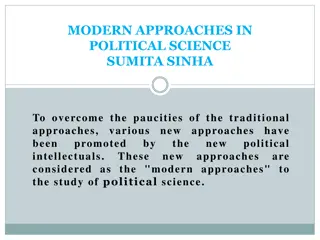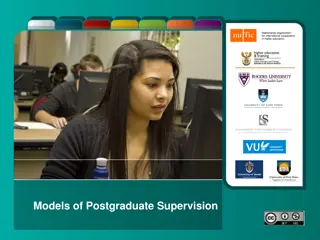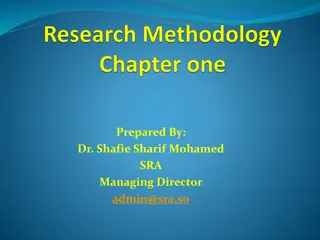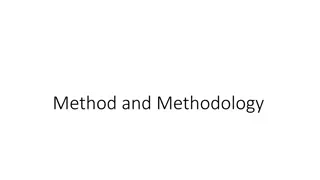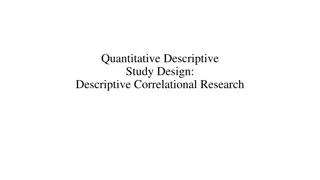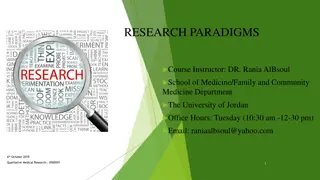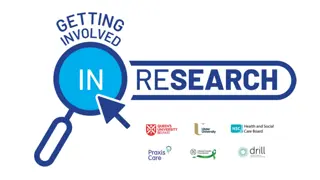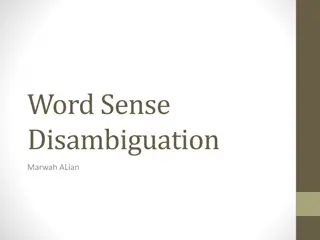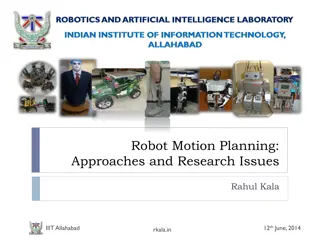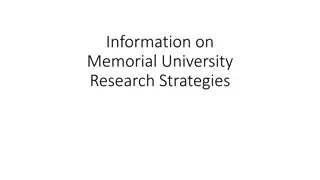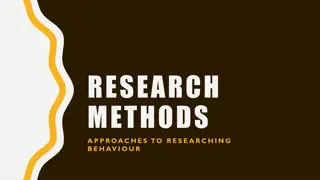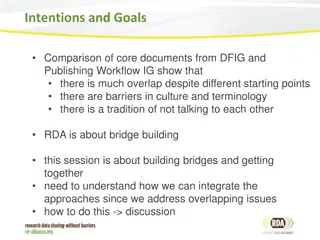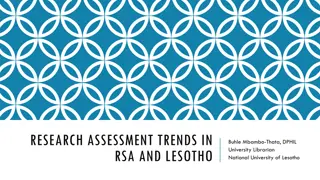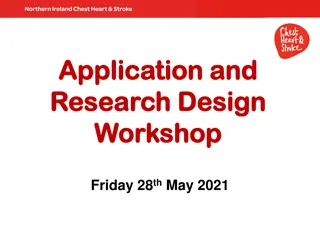get⚡[PDF]❤ Building Habitats on the Moon: Engineering Approaches to Lunar Settle
\"COPY LINK HERE ; https:\/\/getpdf.readbooks.link\/3319682423\n\n[PDF READ ONLINE] Building Habitats on the Moon: Engineering Approaches to Lunar Settlements (Springer Praxis Books) | Building Habitats on the Moon: Engineering Approaches to Lunar Settlements (Springer Praxis Books)\n\"\n
1 views • 6 slides
Approaches in Studying Human-Environment Relationship
Explore different approaches to understanding the dynamic relationship between humans and their environment, including deterministic, teleological, possibilistic, and economic deterministic perspectives. These approaches shed light on how human actions and interactions with the environment have evol
1 views • 9 slides
Treatment of Acute malnutrition using Simplified Approaches.
Simplified approaches in the treatment of acute malnutrition involve modifications to existing protocols to optimize effectiveness, quality, and cost-efficiency. These approaches include family MUAC screening, CHW-led treatment, reduced follow-up visits, expanded admission criteria, single treatment
1 views • 15 slides
Understanding Major Approaches to Educational Planning
Educational planning involves forecasting needs and setting up frameworks for national action. It plays a crucial role in linking education with economic development. Four major approaches to educational planning include Manpower Planning, Social Demand, Rate of Returns, and Social Justice approache
2 views • 11 slides
Costing Out Approaches
Costing out approaches and studies have been developed to ensure schools and districts have adequate resources to meet state education standards. Implementing these approaches involves professional judgment, evidence-based benchmarks, and data requirements. Using multiple approaches allows for trian
0 views • 12 slides
Approaches to Competency-Based Approaches: Support Devices at the UHA Scale
Deployment of Competency-Based Approaches at UHA entails personalized support mechanisms for undergraduate, professional, and master's students. The process involves multiple levels of actors, structured timelines, and a framework for initiating and implementing the approach. Various strategies are
1 views • 28 slides
Approaches to Study Rural Society in India
Study approaches in rural society analysis include historical, structural-functional, comparative, interdisciplinary, cross-cultural, and conflict approaches. These methods delve into factors shaping rural development, societal structures, and inter-village comparisons, contributing to a comprehensi
2 views • 9 slides
Overview of Research Process and Quantitative Research Phases
The research process involves steps like identifying, locating, assessing, and analyzing the research question to find answers. It includes quantitative and qualitative approaches, with specific phases like conceptual, design, empirical, analytic, and disseminating phases in quantitative research. E
9 views • 27 slides
UCC Research Support and Strategies Overview
UCC's Research Support, Policy & Strategy function, led by David O'Connell, PhD, provides comprehensive support for research activities at the university. The office manages research funding, monitors performance, and facilitates engagement with external stakeholders. UCC's involvement in Horizon Eu
3 views • 17 slides
Understanding Quantitative and Qualitative Research Methods
Exploring the differences between quantitative and qualitative research methods, this content delves into the importance of qualitative research, various methodologies such as focus groups and interviews, data collection, research ethics, and analysis techniques. It also covers the elements of the r
4 views • 43 slides
Modern Approaches in Political Science: Overview and Characteristics
Explore modern approaches in political science pioneered by intellectuals to address the limitations of traditional methods. These approaches emphasize empirical data, interdisciplinary study, and scientific methods to draw conclusions beyond political structures and historical analysis. Key modern
1 views • 13 slides
Effective Proposal Writing for Health Research
Learn about the fundamentals of research proposals for health-related studies, including defining research, understanding the purposes of health research, and exploring motivation for undertaking research. Discover the difference between basic and applied research, examine types of research, and del
1 views • 70 slides
Enhancing Recruitment and Retention Strategies in Research Settings
This content delves into the challenges and approaches in recruitment and retention processes for research studies. It covers topics such as review of recruitment tools, engagement in discussions on effective practices, utilization of mass mailings and social media for participant recruitment, and m
2 views • 19 slides
Understanding Models of Postgraduate Supervision and Different Supervisory Approaches
Explore the various roles, styles, and models of postgraduate supervision, delving into the distinctions between supervisor tasks, interaction approaches, and supervision structures. Learn how different supervision models like one-on-one, panel, project, and doctoral programme supervision impact res
1 views • 13 slides
Overview of Research Problem Identification and Formulation
Understanding the importance of defining a research problem, this content delves into the selection and formulation of research problems, the definition of a research problem, reasons for defining it, methods for identifying research problems, sources of research problems, and considerations in sele
1 views • 11 slides
Understanding the Essence of Research: A Comprehensive Overview
Research is a systematic pursuit of new knowledge, aiming to unveil hidden truths through data collection and analysis. This course outline delves into the fundamentals of research, covering topics such as types of research studies, importance of research, and distinctions between pure and applied r
3 views • 32 slides
Understanding Research Methods and Participants
Explore the differences between method and methodology, types of research methods and methodologies, characteristics of participants in studies, and inclusion/exclusion criteria. The content elaborates on the importance of rationale, justification, and techniques/tools used in research, along with e
0 views • 17 slides
Epic Tools for Clinical Research by Shara Power, RN, BSN, OCN
Explore Epic tools for clinical research developed by Shara Power, a skilled application developer specializing in EPIC Beacon Oncology at UIHC Healthcare Information Systems. Learn about managing research study records, investigational study medication orders, and the process for creating and using
0 views • 26 slides
Understanding Quantitative Research Design in Social Science
This content covers various aspects of quantitative research design, including descriptive and correlational studies, research design blueprint, robust research design considerations, and different types of research approaches. It emphasizes the characteristics, techniques, and terminologies associa
0 views • 24 slides
Approaches to Study Comparative Politics: Traditional vs. Modern Perspectives
This chapter discusses the importance of approaches in the study of comparative politics, categorizing them into traditional and modern perspectives. Traditional approaches include philosophical, historical, and traditional institutional approaches, highlighting their strengths and limitations. Mode
0 views • 7 slides
Understanding Research Paradigms in Qualitative Medical Research
Delve into the world of research paradigms in qualitative medical research with a focus on the key differences between objective and subjective research, the meaning of research paradigms, components of research paradigms, types of research paradigms, and how paradigms guide the selection of researc
0 views • 42 slides
Qualitative vs. Quantitative Approaches in Health Research
Exploring the different methodologies, paradigms, and methods used in health research, this content highlights the distinction between qualitative and quantitative designs. It covers research questions, aims, objectives, hypotheses, and various quantitative approaches such as experimental and observ
1 views • 28 slides
Understanding Research Methods: Quantitative, Qualitative, and Mixed Approaches
This introduction provides an overview of qualitative, quantitative, and mixed methods research, highlighting key differences and various types of research approaches. It delves into exploratory, descriptive, and causal research methodologies, offering insights into problem discovery, data collectio
0 views • 50 slides
Guidelines for Selecting Research Project Topics in Environmental Health
Research is crucial for addressing environmental health issues. Choosing a good research topic is the first step towards effective research. This paper discusses the meaning, characteristics, types of research, and the research process to help in selecting appropriate research topics. Understanding
0 views • 15 slides
Comprehensive Research Training Programme in Social Sciences
Delve into the Research Training Programme offered by the Graduate School of Social Sciences, led by Professor Mark Tranmer. Explore the importance of research methods training, course offerings under the Research Training Programme (RTP), the Certificate in Social Science Research Methods (CSSRM),
5 views • 11 slides
Understanding Word Sense Disambiguation: Challenges and Approaches
Word Sense Disambiguation (WSD) is a complex task in artificial intelligence that aims to determine the correct sense of a word in context. It involves classifying a word into predefined classes based on its meaning in a specific context. WSD requires not only linguistic knowledge but also knowledge
2 views • 12 slides
Robotic Motion Planning: Approaches and Research Issues
This content delves into various aspects of robot motion planning, covering topics such as problem-solving in mobile robotics, strategic planning, obstacle avoidance, control, base algorithms like graph search, pros and cons of different approaches, research issues, and objectives related to travel.
0 views • 26 slides
Understanding Research Design in Botany: An Overview
Explore the fundamentals of research design in botany through topics like introduction, parts, features, and importance. Learn about the meaning of research, problem formulation, data collection, and different types of research approaches such as descriptive, applied, quantitative, and qualitative.
0 views • 19 slides
Icelandic Research Fund 2015: Enhancing Scientific Research and Education
The Icelandic Research Fund (IRF) aims to enhance scientific research and education in Iceland by awarding funding to research projects led by individuals, teams, universities, research institutes, and companies. Principal investigators must have completed graduate studies and experience in running
0 views • 22 slides
Challenges in Self-Help Research in Germany
Exploring the landscape of self-help research in Germany reveals various challenges and obstacles faced by researchers in studying self-help initiatives. The research delves into different aspects such as research scope, involvement of various groups, and the entities conducting research in this dom
0 views • 14 slides
Memorial University Research Strategies Overview
Memorial University's research strategies focus on attracting, retaining, and supporting researchers, fostering an environment of research excellence, engaging with community partners, and supporting fundamental and applied research. The university's strategic priorities include synergy in applicati
0 views • 11 slides
Understanding Research Methods and Approaches in Behavior Studies
Explore various research methods and approaches to studying behavior, including biological, cognitive, and socio-cultural perspectives. Learn about legitimate research methods, assessment criteria, and specific examples such as bio methods focusing on brain, hormones, genes, and behavior. Dive into
0 views • 28 slides
Building Bridges and Integrating Approaches in Research for Efficiency and Interoperability
Despite different starting points, there is significant overlap in the core documents of DFIG and Publishing Workflow IG. The session focuses on integrating approaches to address overlapping issues, with an emphasis on building bridges between diverse research cultures and terminology barriers. Key
0 views • 16 slides
Approaches to Variance Estimation in Social Policy Research
This lecture discusses approaches to estimating sampling variance and confidence intervals in social policy research, covering topics such as total survey error, determinants of sampling variance, analytical approaches, replication-based approaches, and the ultimate cluster method. Various methods a
0 views • 34 slides
Research Assessment Trends in RSA and Lesotho: Issues, Challenges, and Forward Strategies
Research assessment in RSA and Lesotho involves evaluating research quality, measuring inputs, outputs, and impacts using both qualitative and quantitative methodologies. The prevailing practices include assessing research productivity for progression and utilizing various assessment mechanisms to e
0 views • 7 slides
Emerging Design and Analysis Approaches in COVID-19 Research
Dennis Ross-Degnan from Harvard Medical School discusses the NEXT-D lessons for COVID-19 research, focusing on study design, bias reduction, data metrics, and the value of long-term research consortia like NEXT-D. The content covers interventions, comparators, observational study design issues, and
0 views • 11 slides
Understanding Public and Patient Involvement (PPI) in Research
Public and Patient Involvement (PPI) in research emphasizes active participation of the public and patients in various research activities such as defining research questions, steering research projects, and engaging with research outcomes. It differentiates involvement, participation, and engagemen
0 views • 15 slides
Exploring Research Design and Funding Priorities in Northern Ireland
Dive into the world of research at the upcoming Application and Research Design Workshop scheduled for Friday, 28th May 2021. Discover the strategic priorities driving impactful research initiatives, learn about current research projects, funding processes, and collaborations. Explore the rich histo
0 views • 37 slides
Writing Research Papers Effectively: Guidelines and Steps
Effective writing for research involves developing a good research idea, writing a literature review, and understanding the key elements of writing research articles. This process includes coming up with a strong research question, gathering relevant information, creating an outline, writing the dra
0 views • 26 slides
Dynamical Approaches to Quarkonia Suppression
This research explores dynamical approaches to understand quarkonia suppression, particularly in the context of Quantum Chromodynamics. By examining quantum thermalisation, stochastic semi-classical methods, and Schrdinger-Langevin approaches, the aim is to go beyond traditional models and offer a m
0 views • 28 slides
![get⚡[PDF]❤ Building Habitats on the Moon: Engineering Approaches to Lunar Settle](/thumb/21624/get-pdf-building-habitats-on-the-moon-engineering-approaches-to-lunar-settle.jpg)









